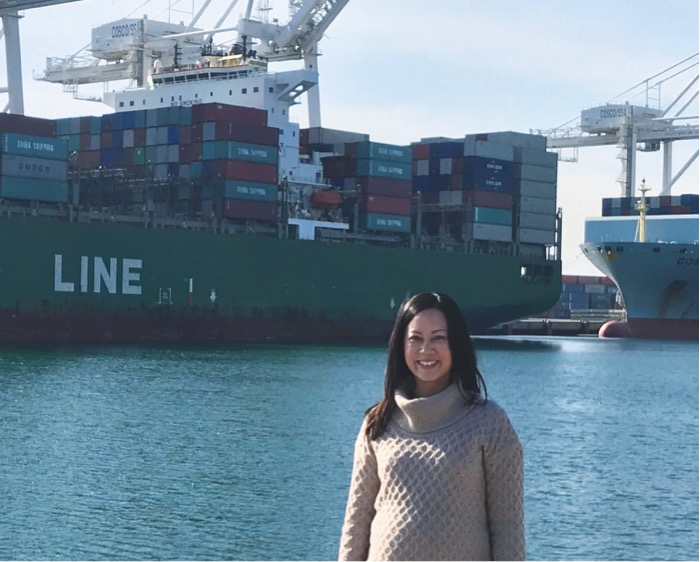Rose Siengsubcharti is one of 25 employees within the Port of Long Beach’s Environmental Planning Division. As an environmental specialist in the division’s air quality group, she works every day to identify new technologies to reduce air emissions from port operations. “We have five sources of pollutants here at the port,” she said, referring to heavy duty trucks, ocean-going vessels, cargo handling equipment, harbor craft and locomotives. “We try to find technology that will reduce emissions from any of those five source categories.” Siengsubcharti is a program manager for the Technology Advancement Program (TAP), a joint initiative between the ports of Long Beach and Los Angeles that awards grants to demonstrate near-zero and zero-emission technologies. The hope is that such technologies would eventually replace diesel-fueled equipment. For example, Siengsubcharti is currently working with a technology provider on a demonstration of battery-electric, zero-emission yard tractors – equipment used to move containers within terminals. “A lot of times, with new technologies, there is still that skepticism about it because we haven’t really seen it in action yet,” she said. “And that’s what I am hoping to change with our demonstration projects, is to show these terminal operators that it actually will work.” The hope with TAP projects is that, when technologies are proven to be effective, they would be commercialized for cost-effective implementation, she explained. These are changes that will not occur overnight, but will take time, she noted. Siengsubcharti’s educational background is in environmental health, “because I have always wanted to help people,” she said. “Being able to help clean the air so that air becomes more breathable for the Long Beach residents is rewarding to me.” She added, “Not only do I work on projects to reduce air emissions, one of my favorite activities is to teach both high school and college students about environmental health.”

